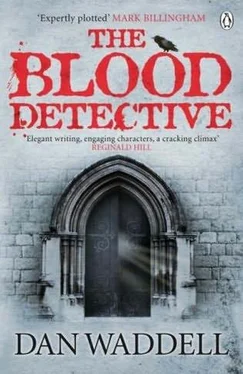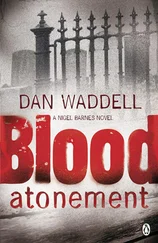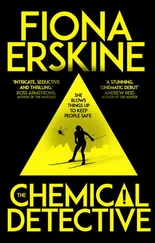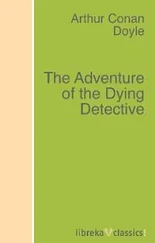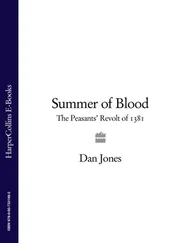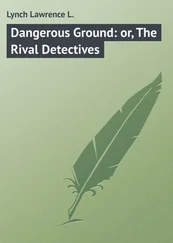Nigel turned and looked at Heather.
She held his arm, squeezed it softly, then turned away. 'Come on,' she urged gently.
Nigel fell in behind her, casting a last glance back at the whiteboard.
They went to the left-hand corner of the office, across a small corridor and through a large door. The meeting room was bare apart from a wooden table in the middle. DCI Foster was there, sitting on one end of the table, scanning a certificate. He nodded at Nigel, his glance flickering with concern.
'You look like shit,' he said.
'We just walked past the whiteboard,' Heather explained.
'Sit down there.' Foster pulled out a chair with his foot. When Nigel sat, he got up, reached over to the tray in the middle of the table and poured a tea.
'Sugar?'
Nigel shook his head, the images still haunting his mind. 'I've never seen a dead person before,' he mumbled.
Foster put the cup in front of him.
'It gets easier,' Heather said. 'But not much.'
'I think I'll stick with death certificates. Less messy,' he added, looking up at her.
'Definitely less messy,' she repeated. Again the smile was warm. Other than the thrill and the excitement, he was finding another reason why he wanted to stick around this murder investigation for as long as he was allowed.
Nigel sipped a lukewarm mouthful of tea as Foster pointed to another man in the room, who Nigel hadn't noticed. He was tall, well-built, in his mid-thirties, blandly handsome.
'This is DI Andy Drinkwater.'
They shook hands.
DI, Nigel thought. Detective Inspector. A rank below Foster, one above Heather.
'DI Drinkwater and DS Jenkins will be helping you go through this pile of certificates. I have to do a press conference with the victim's widow in front of a mass of reptiles, all of them wanting to know one thing: Did she do it?' He peeled his coat from the back of the chair. 'And before you ask. No, she didn't.'
Nigel felt the shock at seeing the whiteboard's contents begin to wear off. The surname of the detective to whom he'd just been introduced finally registered with him. 'Your surname's Drinkwater?'
The detective eyed him suspiciously. 'Yes,' he said slowly.
'I've never met a Drinkwater.'
'Really,' said Drinkwater slowly.
'It's not a common name any more. Do you know what it means?'
'No.'
'It's a very interesting name,' Nigel said.
'It'll be about the only thing interesting about Andy,' Foster interrupted. He'd paused at the door, wanting to hear the etymology of his junior's surname.
Drinkwater gave him a sardonic smile. 'Why's it interesting?'
'There are two theories: either your ancestors lived in such poverty that they could not afford to buy beer, they could only drink water 'Or?' Drinkwater asked, curiosity aroused.
'Or your ancestor was such a drunk that he was given the name "drink water" ironically.'
'It's not ironic any more,' Foster said derisively.
'Andy here doesn't drink, spends his time working out and running on treadmills with all the other pod people.' He grinned. 'That's made my day.'
Foster left for the press conference.
Drinkwater was smiling. 'Thanks for that, Mr Barnes,' he said half seriously and sat down.
On the table were three piles of paper: birth, marriage and death certificates.
'Nigel, you take the marriage certificates.'
'Are we looking for anything in particular?' he asked.
Drinkwater shrugged. 'Anything that has anything to do with the murder. The name, Darbyshire, or the location, St John's Church: there might be a few who got married there. Put them to one side and we can have another look at them.'
He picked up a certificate and the room became silent. Nigel could hear voices coming from elsewhere, the persistent ringing of phones, but the three of them sat and sifted through the documents without saying a single word, reading and rereading, checking every name, every address, every witness on every form for any link. During the course of the next few hours, several links began to turn up: Drinkwater found the birth certificate of a girl who lived on St John's Crescent; Nigel a couple of marriages that took place at St John's Church. These formed the basis of a meagre pile requiring further inquiry.
Heather found nothing relevant; it was heavy going.
Many of the causes of death listed on the certificates were conditions she had never heard of, described in terms no longer used.
Nigel found it enthralling. The thrill of the chase had always been the job's main attraction, yet here the rewards were even greater, the purpose more noble. He scanned each document. His pile was reducing more quickly than the other two. For a second he thought he might be going too fast, but then he realized he was the only one used to reading the handwriting and scrutinizing the documents at a glance. Yet he had not come across anything he
deemed significant and wondered whether he should have subjected the discarded documents to closer scrutiny.
'Bingo!' Heather shouted, startling the other two.
'What?' Drinkwater asked.
She held her finger up to quieten him as she reread the form. 'Bloody hell,' she said, inserting an emphatic 'a' between the 'b' and T to show her surprise. 'Jesus!' She scrabbled in the pocket of her jacket on the back of the chair and found her mobile.
She dialled quickly.
'Tell us what it is, Heather,' Drinkwater demanded.
Without speaking she tossed the certificate in front of him. 'Sir, it's Jenkins,' she said into the phone.
'Get back here as soon as you can. We've found it.'
Nigel watched as Foster, lounging on the table, his tie pulled loose from his neck, read the death certificate.
'It's got to be it, hasn't it?' Foster said eventually, looking at Heather and Drinkwater.
The certificate belonged to an Albert Beck, a 32year-old tanner of Clarendon Road, North Kensington.
He had been found stabbed to death in the grounds of St John's Church, Ladbroke Grove on 29th March 1879. The day James Darbyshire's body had been discovered.
Foster stared at the certificate, pulling at his bottom lip.
'We need to see if we have anything in our archives about this crime,' he said at last.
Drinkwater scribbled in his notebook.
Nigel had been quiet ever since Foster arrived.
'Much of the Metropolitan Police archives were destroyed in the Blitz. I think you'll find that the records from the second half of the nineteenth century were decimated.'
Foster nodded. 'Thanks. But get someone to check it out, Andy.' He turned to Nigel. 'The killer must have seen this death certificate, or known of it in order to have led us to it, correct?'
Nigel nodded.
'And you said this reference was from the central index. Does that mean he or she could only have ordered it from the Family Records Centre?'
'Not necessarily,' Nigel replied. 'There are several websites where you can browse the indexes online, though it costs you; or you can order online from the GRO.'
'Anywhere else?'
'There's always a possibility they already owned the death certificate.'
'What do you mean?'
'It's in the family; they could be related to the dead man. Or it could simply have fallen into their possession.'
'Let's discount that for now. For all the other possibilities, the person would have had to order it and get it sent to an address?'
'Unless they paid for it at the FRC and collected it a few days later.'
Foster went back to scanning the document, as if it would yield more secrets the longer he stared at it.
'Well, that gives us something to work on,' he said to his two officers. 'We need to get someone along to the FRC, get hold of any CCTV footage, find out if anyone else has ordered this certificate, who they were, OK?'
Читать дальше
